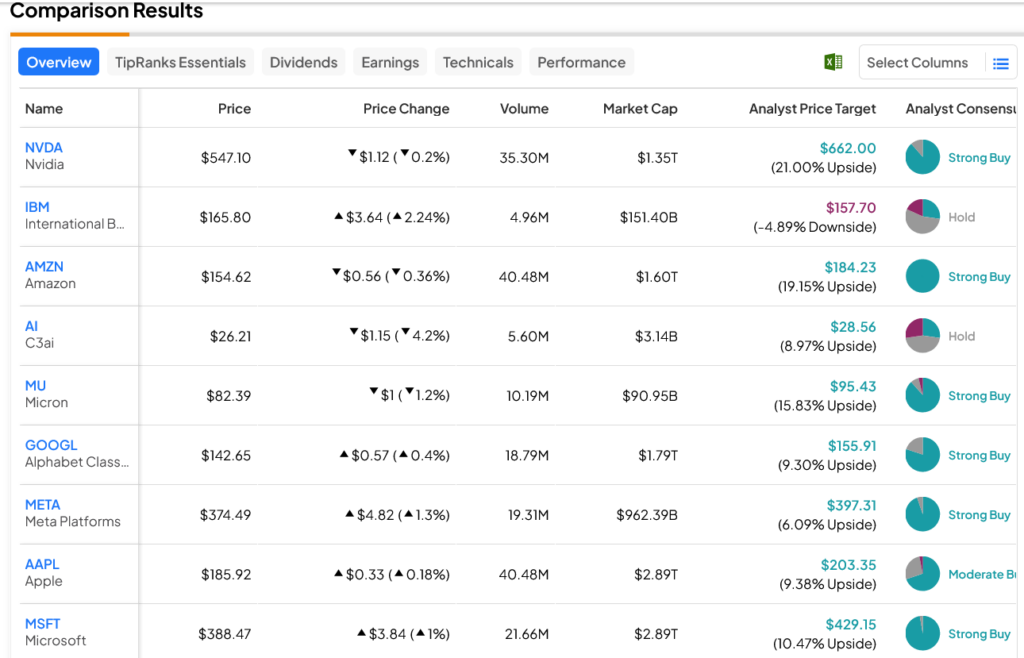When artificial intelligence (AI) started catching on, one worrisome note tended to resonate more often than not: Skynet (from the Terminator movies). However, there are signs that AI may be less about murdering humanity directly and more about starving it instead. As in, it’s looking to take our jobs. With this in mind, various AI stocks have seen their share prices shoot higher over the past 12 months.
Elevate Your Investing Strategy:
- Take advantage of TipRanks Premium at 50% off! Unlock powerful investing tools, advanced data, and expert analyst insights to help you invest with confidence.
Word from the International Monetary Fund (IMF) suggests that AI could impact around 40% of all the jobs on Earth. Some jobs will be impacted more than others; the IMF looks for high-skilled jobs to take the biggest hit in a radical departure from normal technological advancement that normally renders low-skilled jobs obsolete. In fact, that 40% is merely a global average. In advanced economies, that level may be closer to 60%, while in emerging markets, it’s closer to 40%. Low-income countries have the least to fear from AI, with only about 26% of their jobs potentially impacted.
Help (Not) Wanted
Of course, the term “impacted” has several meanings, which muddies things here just a bit. By “impacted,” you can mean anything from “There’s a new tool here that will help your job” to “We don’t really need you anymore because this app does everything you do.” Remember the 2023 Hollywood strikes; the impact of AI was one of the central sticking points of the actors’ and writers’ strikes.
The head of the IMF, Kristalina Georgieva, called on nations to “establish social safety nets” and “offer retraining programs” to soften the blow. Failing to do so might open a path for the modern-day Luddite to turn to ransomware attacks or the like to “get back” what AI took from them.
Which AI Stock is the Best Buy?
Turning to Wall Street, analysts consider NVDA the leader in AI stocks. This Strong Buy-rated stock offers investors a 21% upside potential with an average price target of $662 per share. Meanwhile, the laggard in the sector is IBM stock. This Hold-rated stock with an average price target of $157.70 offers investors 4.89% downside risk.

















